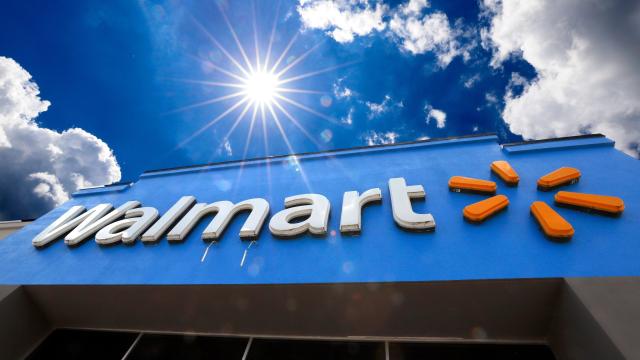Walmart, Target, Home Depot, and other box stores are home to acres and acres of sweet, flat rooftop space. That veritable sheet metal prairie is ripe for many uses, but there may be none better than as solar farms.
A new report from Environment America finds that big box stores could be a huge resource for solar power, potentially providing enough power for 8 million homes. And once you think about the maths, this is a little bit of a no-brainer.
The U.S. has a lot of big box stores. There are more than 100,000 superstores across the country, which means about 7.2 billion square feet (670 million square meters) of rooftop space. Using data from the National Renewable Energy Laboratory, the report estimates that about two-thirds of that underutilized area could be used for solar panels. Fully equipping that space could generate 84.4 terawatt-hours of energy per year, which would save more than 52 million metric tons of carbon dioxide.
There’s even room for improvement: Environment America last ran a similar analysis in 2016, and this year’s figures for possible electricity generation are about 9% higher than they were seven years ago — thanks in large part to improvements in solar technology, rather than more big stores being built.
“There’s massive potential across the entire country for big-box stores to produce solar,” Wade Wilson, an author of the report, told the Washington Post. “These are big rooftops that need to be taken advantage of, and we need to start using them.”
Going on a big box store solar-installing spree would not only help the U.S. reach its ambitious clean energy goals — last year, the Biden administration set a target for the U.S. to get half its electricity from solar by 2050 — but also save stores some serious cash. Big stores could supplant half their yearly electricity use just by plopping some solar panels upstairs, the report finds, which has the added bonus of saving energy that would otherwise get lost in transmission and distribution.
Some chains stand to benefit a lot more than others. The report finds that Walmart has far and away the most usable solar space, with three times more solar capacity than runner-up Target. Home Depot ranked third for possible solar potential. Location is also important. California, Florida, Texas, Ohio, and Illinois are the states with the biggest amount of roof space to maximise. Federal data shows that the first three are among the states with some of the best solar power generating potential in the country, making this even more of a slam dunk.
Some stores have already taken the hint. The report notes that big box giants Walmart and Target are two of the four companies that already have the most solar capacity installed in the U.S. (The other two are Amazon and Apple, which also operate some retail stores as well as non-customer-facing warehouses and shipping centres that have serious solar potential). Walmart, to its credit (didn’t think I’d ever write those words), has already installed solar panels that are making a difference. Arrays on the company’s California stores are already providing between 20% and 30% of each building’s electricity needs.
While turning box stores into solar farms would be a big asset on its own, doing so would also set an example for the rest of the country. One of the emerging barriers in getting large-scale solar off the ground is local opposition to the use of space; from NIMBYs worried about solar panels wrecking their views to environmental groups fighting to save rare species habitat, there are a lot of disparate groups that can come out of the woodwork when a solar field is proposed in their backyard. While I don’t want to put anything past NIMBYs, it’s hard to imagine any opposition to making that big, old Walmart a little bit more useful.
